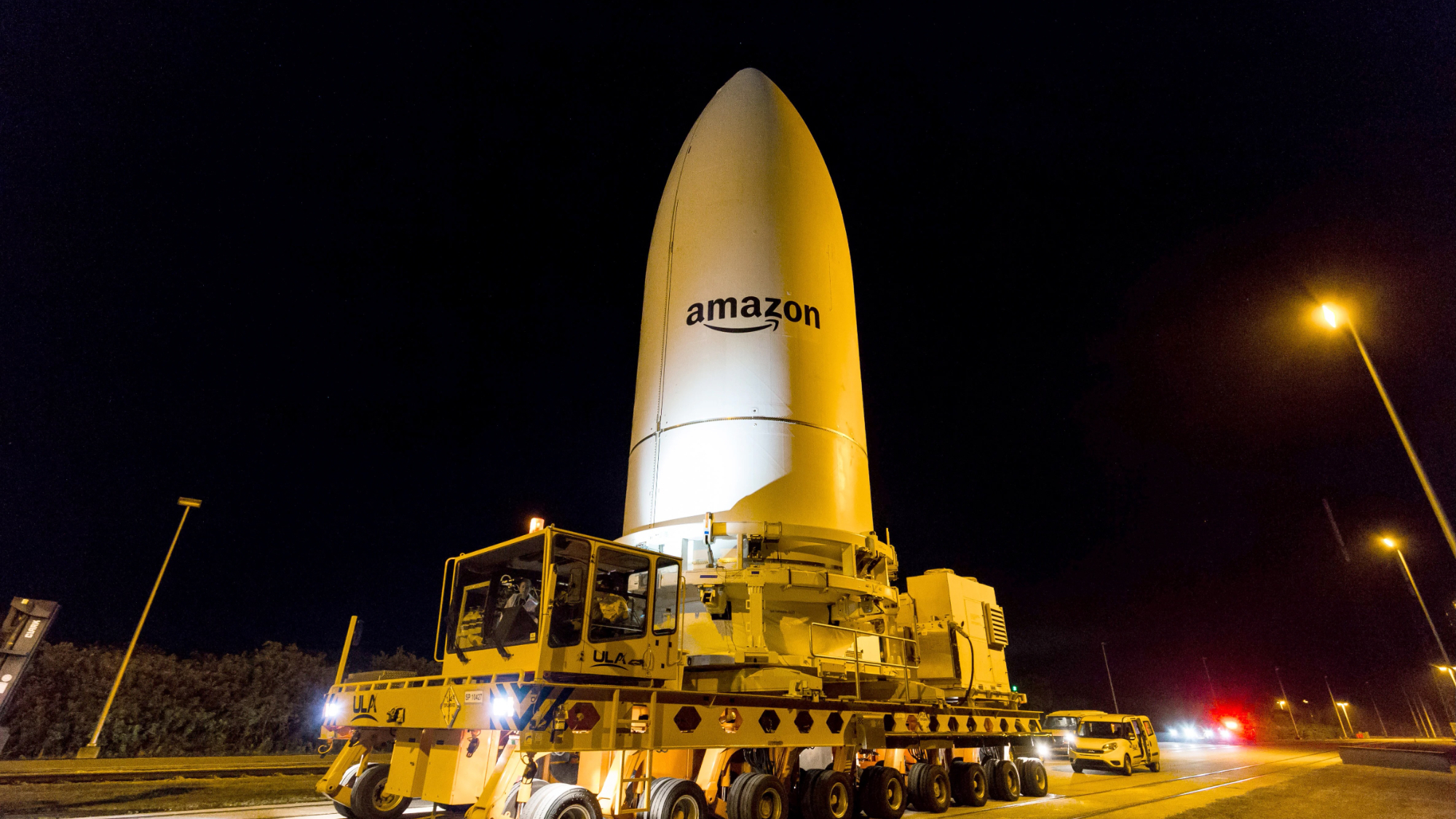
Amazon's first big batch of Project Kuiper broadband satellites will lift off just a week from now, if all goes according to plan.
A United Launch Alliance (ULA) Atlas V rocket is scheduled to send 27 Project Kuiper satellites to low Earth orbit (LEO) on April 9, Amazon announced today (April 2).
The Atlas V will lift off from Florida's Cape Canaveral Space Force Station during a three-hour window that opens at 3 p.m. EDT (1900 GMT). You'll be able to watch it live when the time comes.
This will be the second Project Kuiper launch to date; an Atlas V lofted two test versions of the satellites back in October 2023.
Related: Atlas V rocket launches Amazon's 1st 2 internet satellites to orbit (video)
"We've done extensive testing on the ground to prepare for this first mission, but there are some things you can only learn in flight, and this will be the first time we've flown our final satellite design and the first time we've deployed so many satellites at once," Rajeev Badyal, vice president of Project Kuiper, said in an Amazon statement today.
"No matter how the mission unfolds, this is just the start of our journey, and we have all the pieces in place to learn and adapt as we prepare to launch again and again over the coming years," Badyal added.
The initial Project Kuiper constellation will consist of about 3,200 satellites in LEO, according to Amazon. The network will provide internet service to customers around the world, just as SpaceX's Starlink megaconstellation already does. (Elon Musk's company currently operates more than 7,100 Starlink satellites in LEO and launches more of them every week.)
The April 9 launch will be the first of the year for ULA. The 27 Project Kuiper satellites will comprise the heaviest payload that the venerable Atlas V has ever flown, according to Amazon.
The company will build out the Project Kuiper constellation over the coming years with seven more Atlas V launches and 38 involving the rocket's successor, ULA's new Vulcan Centaur.
"An additional 30-plus launches are planned across our other launch providers: Arianespace, Blue Origin and SpaceX," Amazon wrote in today's statement.







